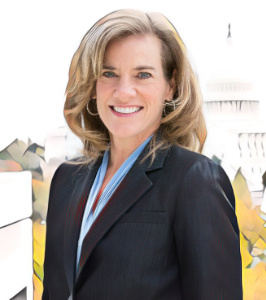Forcing states to fund religion
The Carson v. Makin case marks the third time in only five years that the Court will consider a case involving a religious claim to participate in a government program that conflicts with a state’s legitimate interest in avoiding the funding of religion.

Should states be forced to fund the training of young men and women to serve the Lord and become leaders in their church? Of course not. That’s the obvious answer for historic Baptists and others who have long championed religious liberty for all and public education. Religion has a distinctive role in law and society. It is best served by the separation of the institutions of religion and government. Yet, a majority of justices on the current Supreme Court keep ignoring this aspect of America’s religious liberty legacy.
In Carson v. Makin, parents are seeking state support for their children’s private religious education. BJC and its allies are urging the Court to recognize the historical reasons for keeping the government out of religion. Founding era concerns should be well known to a Court that claims history as its guide to interpreting the Constitution. Those concerns include protecting individual conscience, respecting inherent limits of government authority in religious matters, and avoiding the creation of divisions based on religious differences. As a result, state constitutions and other laws prohibited aid to religious institutions. With history and prior precedents in mind, the Court should uphold Maine’s system for providing a free public education without sponsoring religious education — but we are fighting an uphill battle.
The Carson case marks the third time in only five years that the Court will consider a case involving a religious claim to participate in a government program that conflicts with a state’s legitimate interest in avoiding the funding of religion. In Trinity Lutheran v. Comer (2017), the Court rejected Missouri’s ban on aid to churches as applied to a program that provided grants for playground materials made of recycled tires. The secular nature of the program allowed the Court to ignore historic reasons for keeping the state out of church business. In Espinoza v. Montana (2020), the Court went further and held that a Montana tax credit program that funded scholarships to private schools must include private religious schools, notwithstanding Montana law intended to separate church and state. In both cases, the Court purported simply to uphold a principle of nondiscrimination. According to the decisions, the programs violated the Free Exercise Clause because they excluded potential beneficiaries based on their religious status. The Carson case tests whether this Free Exercise Clause nondiscrimination rule will be extended to prohibit state programs that are designed to avoid government involvement in religious uses of government funds — such as the explicitly religious activity of providing an education designed to instill a biblical worldview. In our view, it should not.
The Religion Clauses of the First Amendment to the U.S. Constitution protect the free exercise of religion and protect against government establishment of religion. These provisions have long been understood to have a common purpose. Together, the Religion Clauses along with Article VI of the Constitution (which prohibits any religious test for office) form the legal framework for religious liberty that has been a model of success. Unfortunately, the current Supreme Court is moving toward a vision of religious liberty that expands free exercise to a point that directly threatens principles of no establishment.
As we argue in an amicus brief in support of Maine, that approach is at odds with the history and design of the Religion Clauses. Protections for the free exercise of religion were adopted alongside provisions prohibiting any compelled support for religion. Ignoring the common purpose of these protections — to secure religious liberty — threatens to harm the public’s appreciation for religion and its special place in our constitutional order and society. Religious individuals and religious institutions are uniquely responsible for shaping their beliefs and promoting their faith. The government’s role in religious education is and should be limited. An interpretation of religious freedom that privileges religious practices and requires government support of these practices is not likely to be sustainable.
Previous rulings opened the door for state programs to fund education in religious schools, which had been considered constitutionally off-limits. Two decades ago, the Court upheld an Ohio school voucher program against a challenge that it violated the Constitution’s ban on the establishment of religion. The Court found in Zelman v. Simmons-Harris (2002) that the Cleveland pilot program at issue was one of “genuine private choice” by parents and thus was permissible even if a majority of program funding would go toward tuition at private religious schools. Such programs remain controversial. There was no hint in that case that the Free Exercise Clause would require Ohio to include religious schools in its school choice program, much less that such a requirement could apply in a program like the one in Carson that only involves funding public education across Maine’s small rural population. Recently, the Court has recognized the significant differences between secular education and religious education in cases applying the “ministerial exception” to teachers in private religious schools. To ignore those differences in the Carson case would mark a complete shift in the Court’s interpretation of the Religion Clauses and the values that undergird them.
This column first appeared in the winter 2021 edition of Report from the Capital. You can download it as a PDF or read a digital flip-through edition.




